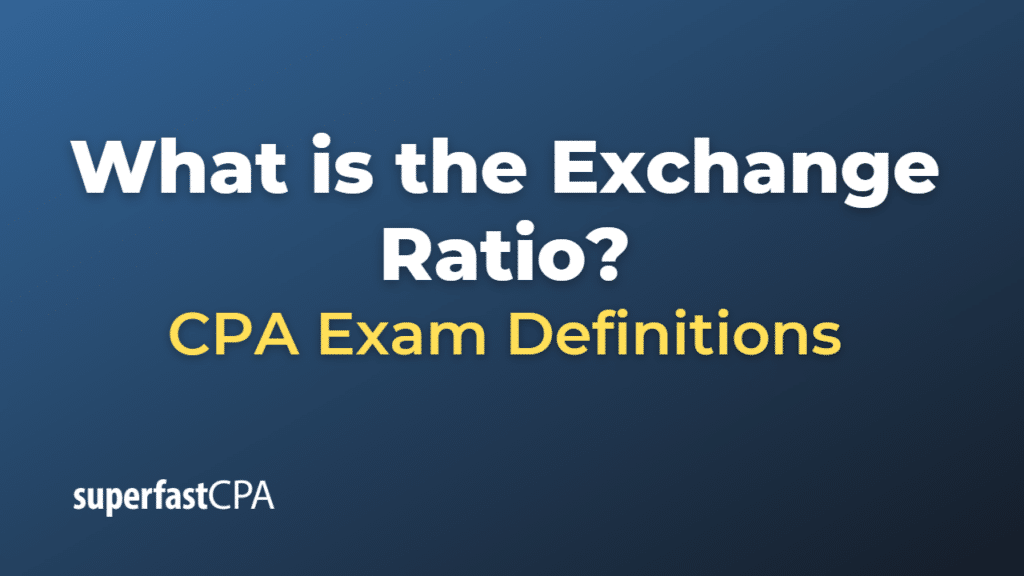Exchange Ratio
The exchange ratio is a term commonly used in financial transactions, particularly in mergers and acquisitions, to describe the number of new shares that will be given to the existing shareholders of a company being acquired or merged.
The exchange ratio is determined by the relative values of the two companies involved in the transaction and is often subject to negotiation between the parties involved.
For example, if Company A is acquiring Company B, and the agreed upon exchange ratio is 2:1, this means that for every share of Company B, shareholders will receive two shares of Company A.
In some cases, the exchange ratio is not a whole number. If the ratio was 0.5:1, this would mean that for every two shares of Company B, a shareholder would receive one share of Company A.
The exchange ratio is important because it determines how much the shareholders of the company being acquired will own in the combined entity after the merger or acquisition. It’s a crucial aspect of the deal terms and is often a focus of negotiation.
Example of the Exchange Ratio
Let’s consider a hypothetical example involving two companies, Company A and Company B.
Suppose Company A wants to acquire Company B. After some negotiation, they agree that the exchange ratio will be 2:1. This means that for every one share of Company B, shareholders will receive two shares of Company A.
If a shareholder of Company B has 100 shares, then after the merger or acquisition, they would receive 200 shares of Company A (100 shares of Company B * 2).
So, the exchange ratio is used to determine how many new shares an existing shareholder will receive in a merger or acquisition. It essentially establishes the value each company’s shareholders will receive from the transaction.
Please note that this is a simplified example, and actual merger and acquisition transactions can be much more complex. The exchange ratio is just one part of the deal terms, and other factors such as the valuation of each company, the form of the transaction (whether it’s a stock or cash deal), and potential regulatory and tax implications can also play significant roles.













